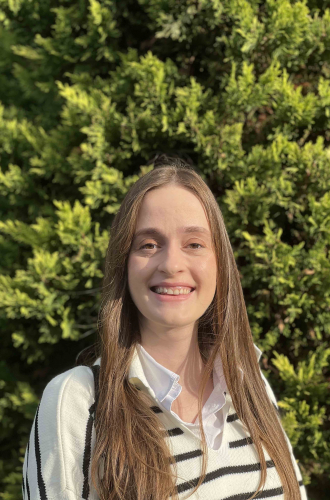-

-

-
-
B.A. Psychology, Bilkent University (2015)
M.A. Psychology, Bilkent University (2017)
M.A. Human Development and Family Sciences, Cornell University (2019)
Ph.D. Developmental Psychology, Cornell University (2022)
-
Urganci, B., Chen, P.H., & Williamson, H. C. (in press). Many Distressed Couples Seek Community-Based Relationship Education but Don’t Benefit from It. Family Relations.
Balzarini, R.N., Muise, A., Zoppolat, G., Di Bartolomeo, A., Rodrigues, D. L., Alonso-Ferres, M., Urganci, B., Debrot, A., Pichayayothin, N.B., Dharma, C., Chi, P., Karremans, J., Schoebi, D., & Slatcher, R.B. (2022). Love in The Time of COVID: Perceived partner responsiveness buffers people from lower relationship quality associated with COVID-related stressors. Social Psychological and Personality Science, 14(3), 342-355.
Urganci, B., Ong, A.D., Burrow, A.L., & DeHart, T. (2022). Linking Mean Level and Variability in Affect to Changes in Perceived Regard: A Dyadic Longitudinal Burst Study of African American Couples. Journal of Social and Personal Relationships, 40(4), 1151-1171.
Ong, A.D., Urganci, B., Burrow, A.L., & DeHart, T. (2022). The Relational Wear and Tear of Everyday Racism Among African American Couples. Psychological Science, 33(8), 1187-1198.
Zoppolat, G., Righetti, F., Balzarini, R., Alonso-Ferres, M., Urganci, B., Rodrigues, D., Debrot, A., Wiwattanapantuwong, J., Dharma, C., Chi, P., Karremans, J., Schoebi, D., & Slatcher, R. (2022). Relationship difficulties and “technoference” during the COVID-19 pandemic. Journal of Social and Personal Relationships, 39(11), 3204-3227.
Rosenfeld, D. L., Balcetis, E., Bastian, B., Berkman, E. T., Bosson, J. K., Brannon, T. N., Burrow, A. L., Cameron, C. D., Chen, S., Cook, J. E., Crandall, C., Davidai, S., Dhont, K., Eastwick, P. W., Gaither, S. E., Gangestad, S. W., Gilovich, T., Gray, K., . . . Urganci, B., . . . Tomiyama, A. J. (2022). Psychological Science in the Wake of COVID-19: Social, Methodological, and Metascientific Considerations. Perspectives on Psychological Science, 17, 311–333.
Urganci, B., Sevi, B., & Sakman, E. (2021). Better relationships shut the wandering eye: Sociosexual orientation mediates the association between relationship quality and infidelity intentions. Journal of Social and Personal Relationships, 38, 1401-1409.
Sakman, E., Urganci, B., & Sevi, B. (2021). Your Cheating Heart is Just Afraid of Ending up Alone: Fear of Being Single Mediates the Relationship between Attachment Anxiety and Infidelity. Personality and Individual Differences, 168, 110366.
Gunaydin, G., Selcuk, E., Urganci, B., & Yalcintas, S. (2021). Today you care, tomorrow you don’t: Differential roles of responsiveness variability and average responsiveness in romantic attachment. Social Psychological and Personality Science, 12, 839-849.
Sevi, B., Urganci, B., & Sakman, E. (2020). Who cheats? Examination of light and dark personality traits as predictors of infidelity. Personality and Individual Differences, 164, 110126.
Pasha-Zaidi, N., Afari, E., Urganci, B., Sevi, B., & Durham, J. (2020). Investigating the relationship between adverse childhood experiences (ACEs) and resilience: A study of undergraduate students in Turkey. Journal of Aggression, Maltreatment, and Trauma, 29, 1204-1221.
Ong, A.D., Gardner, S., Urganci, B., Gunaydin, G & Selcuk, E. (2020). Affective reactivity, resting heart rate variability, and marital quality: A 10-year longitudinal study of US adults. Journal of Family Psychology, 34, 375-382.
Pasha-Zaidi, N., Afari, E., Sevi, B., Urganci, B., & Durham, J. (2019). The responsibility of learning: A cross-cultural examination of the relationship of grit, motivational beliefs, and self-regulation among college students in the US, UAE, and Turkey. Learning Environments Research, 22, 83-100.
-







